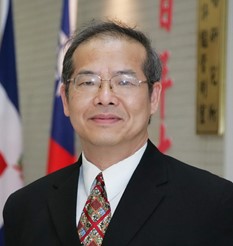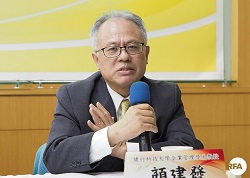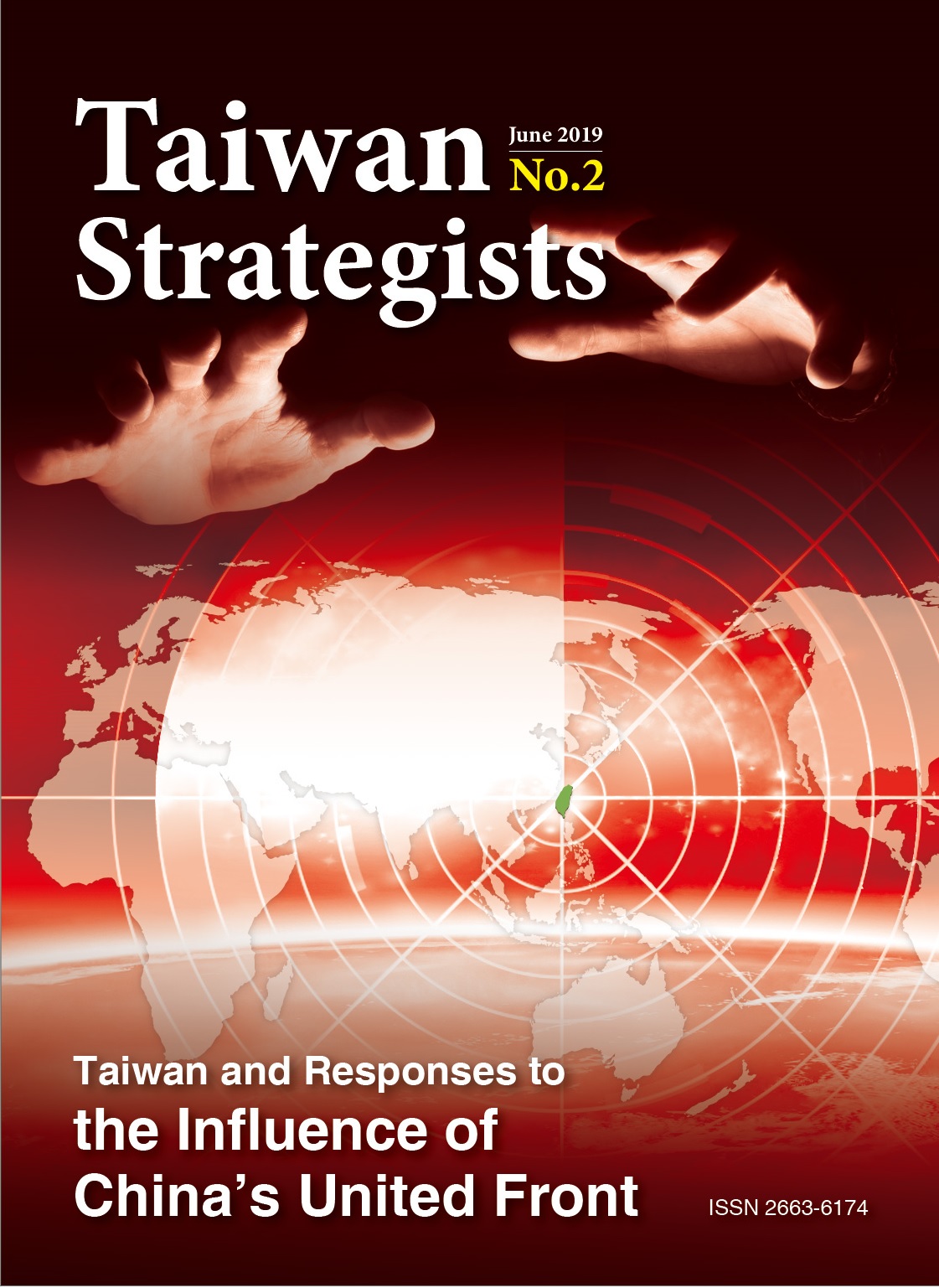Taiwan and Responses to the Influence of China's United Front
Taiwan Strategists No.2 (June 2019)
China's Cyber Warfare Strategy and Approaches toward Taiwan
Associate Professor & Director,
Graduate Institute of Strategic Studies,
National Defense University
Chinese cyber warfare is known to the international society as a means of information penetration, account hijacking and secret sabotage. Given its aim to eventually unify Taiwan, China's efforts to penetrate, disrupt, and spy on Taiwan in the name of United Front will be never-ending, which in turn justifies Taiwan as a testing site for its cyber warfare. Although there are still technical gaps between China's network defense know-hows and those of advanced western countries, China's unrestrained online hacking behavior in the name of unlimited warfare and without regard for international norms are indeed disturbing in the eyes of western societies. Given these strategies used by Chinese Cyber Army, two policy recommendations are put forward that can be further divided into offensive and defensive measures.
Keywords: Cyber Warfare, China Cyber Army, Cyber Strategy, Cyber Attack, Cyber Defense
Taiwan's Strategic Role in Coping with China's Expansionism: In the Wake of Nine-in-One Elections, 2018
Professor, Department of Business Administration,
Chien Hsin University of Science and Technology
The rise of China has posed threats toward not only Taiwan and neighboring countries, but it also has challenged US hegemony in the Asia-Pacific region. Exposed to China's penetration and disturbances, Taiwan's open society has offered easy access for Beijing's political manipulation and psychological intimidation via the Three Wars, and its democracy has become fertile soil for internal opposition and confrontation. Taiwan also suffers from China's divide-and-rule and carrot-and-stick tactics. Since Taiwan is located at the axis of the First Island Chain, Taiwan's fragility would become a point of penetration for Chinese expansionism. Now is the time for the US-led democracies to pay more attention to Taiwan's democratic development, i.e., the implications of the nine-in-one elections held in November 2018 and the prospects of the coming presidential and legislative elections to be held in January 2019. Besides, the best defense is a good offense. Taiwan and US-led democracies have to work together in exporting democracy to China. Taiwan can be a good strategic partner for the US in conducting its Indo-Pacific Strategy.
Keywords: Rise of China, Three Wars, First Island Chain, Elections, Indo-Pacific Strategy
Taiwan and the CCP's "Public Opinion Warfare"
Central Police University
The Chinese Communist Party (CCP) has created a "Three Warfares" strategy. The core concept of the Three Warfares is public opinion warfare because of its powerful cognitive effect. The CCP's Three Warfares constitute the most serious challenge facing democratic societies today. A comparison of the CCP's Three Warfares against Taiwan with those against other countries is particularly revealing. It is commonly thought that the CCP's comprehensive and flexible influence operations are sharper than Russia's. In addition to strengthening crisis management capabilities and communication channels, the Taiwanese government must also work with regional and global liberal democracies to establish a common defense mechanism to counter the CCP's public opinion warfare.
Keywords: Three Warfares, Public Opinion Warfare, Fake News, Sharp Power, Cybersecurity





